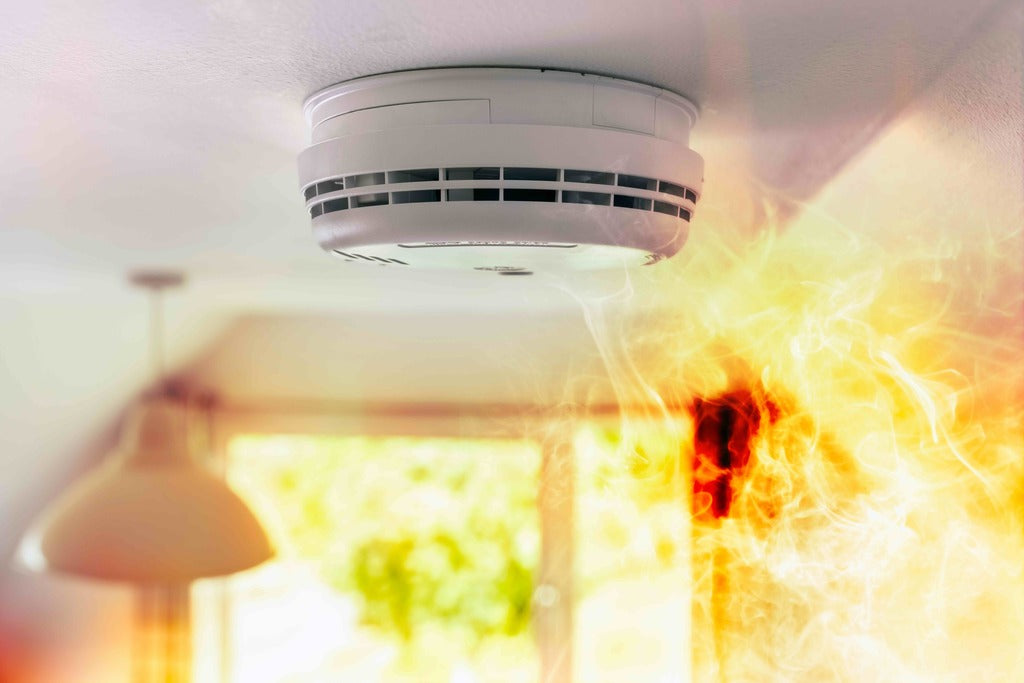6 Types of Fire Alarm Systems Suitable for Chemical Industry Facilities
4 min read
Fire safety isn’t just another item on the checklist in chemical plants. It has to be your #1 priority. In 2023 alone, over 270 hazardous chemical incidents occurred in the US, including fires. Many of these incidents, especially fire-related, are preventable.
With a well-equipped fire alarm system, you can keep such accidents in check. However, not all fire alarm systems are created equal. What works in your apartment building may not be suitable for a chemical plant.
So, which fire alarm systems are more suitable for chemical industry facilities?
Let’s find out.
1. Conventional Fire Alarm Systems
Conventional fire alarm systems are a reliable way to protect your facility. These systems divide your facility into broad fire safety zones. When a fire breaks out, the system identifies the zone and sends alerts.
However, the major drawback is that this fire alarm system cannot identify the exact location of the fire. Still, a conventional system might be suitable for small and less complex chemical industry facilities. Of course, you should consult a fire alarm system provider to check if the conventional system could be enough to meet your needs.
2. Addressable Fire Alarm Systems
Addressable fire alarm systems are often the go-to for large and complex chemical industry facilities. These systems can do more than just throw off an alarm.
Each device connected to the system has a unique address. When a fire is detected, the system tells you exactly where the alarm was triggered. It helps the fire department to identify the source of the fire quickly.
In large chemical plants, it’s often difficult to detect the exact source of the fire, which can lead to extensive damage and loss of life. However, addressable fire alarm systems help you overcome this barrier. Their swift response can save lives and keep the damage under control.
3. Air Sampling Smoke Detectors (ASSDs)
You’ve probably heard the expression, “Where there’s smoke, there’s fire.” That’s exactly how air sampling smoke detectors work. These systems are highly sensitive and can detect a fire at an early stage, often before open flames appear. They are far better at detecting the smoke than the traditional smoke detectors.
These systems detect and measure the smoke in the room continuously. They send multiple preliminary warnings before sending a signal to your fire alarm control panel (FACP). This allows you to identify the source of the fire quickly.
These systems can be a game changer in large chemical industry facilities, where every second counts. ASSD’s advanced warning system can save many lives. They are ideal for protecting high-risk areas where chemicals are processed or stored.
4. Flame-Sensing Radiant Energy Fire Detectors
These are probably the best fire alarm systems for chemical industry facilities. These systems can detect the radiant energy emitted by flames. They are incredibly useful in chemical plants, where quick-burning materials are stored. These materials catch a fire so quickly that flames might appear before the smoke.
Flame-sensing radiant energy fire detectors can detect different types of radiant energy, such as infrared (IR) and ultraviolet (UV) light, which flames naturally emit. They can also differentiate between different energy wavelengths. That means these systems are less likely to send false alarms.
They can quickly detect fires from a distance, which allows for a rapid response. A quick response can mitigate structural damage and save lives in your facility.
5. Heat-Sensing Fire Detectors
You cannot overlook heat-sensing fire detectors when installing a fire alarm system for your chemical industry facility. Heat-sensing fire detectors, also called thermal detectors, can detect temperature changes.
You can calibrate these detectors to respond when the room exceeds a certain temperature threshold. The detectors have a heat-sensitive wire coating that can detect heat. The rapid rise in temperature melts the coating, triggering a signal to your fire alarm control panel.
Heat levels can vary significantly and rapidly in chemical industry facilities. These detectors offer a reliable solution, especially for areas that store flammable material.

6. Gas-Sensing Detectors
Gas leaks and hazardous fumes are one of the major fire hazards in the chemical industry. That’s why a fire alarm system for the chemical industry is incomplete without gas-sensing detectors.
Typically, these detectors use catalytic and infrared sensors. Catalytic sensors can measure gas concentrations through a reaction that produces heat. On the other hand, infrared sensors can identify specific wavelengths of light absorbed by gases. Both are highly effective in detecting flammable and toxic gases.
These detectors send multiple preliminary warnings before the concentration is high enough to ignite. Be sure to equip your fire alarm system with these smoke detectors. It’ll allow you to mitigate the risk of fire or a gas leak quickly and efficiently.
Conclusion
When selecting a fire alarm system for your chemical industry facility, you must understand its unique features. Each system has its strengths. You have to find a system that best meets your safety needs. It could be a stand-alone system or a network of different fire alarm systems and detectors. Whatever you choose, don’t forget to consult an experienced fire alarm system provider. They can help you make an informed decision.

